
Apparel DECODED
Previous edition: 27 Mar 2024
Share article
Get the full version straight to your inbox.
Exclusive access to our best-in-class data & intelligence
Subscribe now
Fashion's polluting title debunked but tackling toxic impact remains vital
Ethical fashion advocate Erica Marigliani revealed during a recent seminar there is a lack of empirical evidence to support fashion's second most polluting industry status, however she argued the urgent need to reduce consumers' toxic and unsustainable relationship with fashion has never been greater.
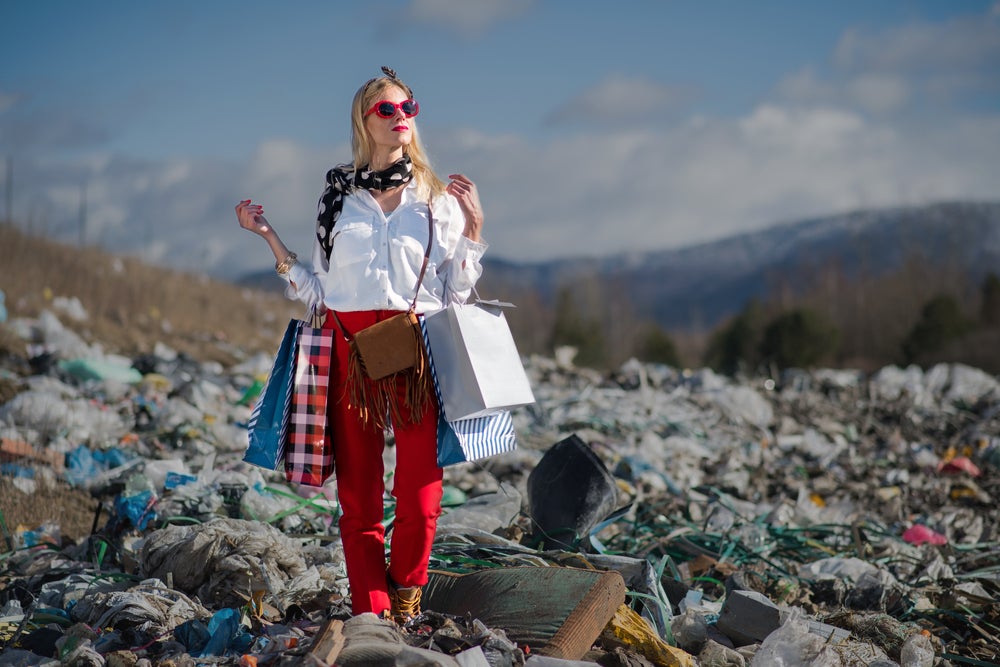
Erica Marigliani a professor of anthropology of complex societies at the IUAD Accademia Della Moda of Milano was quick to debunk the myth surrounding the fashion industry's ranking as the second most polluting industry during her 'New Era in Fashion: Less Fast Fashion, More Quality, Ethical Fashion' seminar at Istanbul Fashion Connection (IFCO)
However, she did not shy away from acknowledging the industry's significant environmental footprint, citing alarming statistics from an article by Vanessa Friedman on 'The Biggest Fake News in Fashion' such as:
- Nearly 3/5 of all clothing ends up in incinerators or landfills within a year of being produced
- 8% of carbon emissions are produced by the fashion industry
- 20% of all global wastewater is produced by the fashion industry
- 20-25% of globally produced chemical compounds are used in the textile finishing industry
- There is an anticipated 50% increase in greenhouse gas emissions by 2030.
She noted the statistics paint a grim picture: from carbon emissions to wastewater pollution, the fashion industry leaves an indelible footprint on the planet.
Fast fashion's impact on the industry
Marigliani was also keen to pull back the curtain on the hidden costs of fast fashion, exposing the industry's role as a contributor to environmental degradation.
Behind the dramatic rise in fashion and fast fashion, Marigliani is convinced garments are designed to be disposable. She believes fast fashion has caused an unnecessary overconsumption leading to excessive waste, much of which cannot be recycled, and the result is a massive impact on our environment.
“Today we can find a lot of vintage, high-brand clothing now but by continuing to buy fast fashion clothing, we are feeding a low-quality future vintage market. In ten to 20 years, we will no longer find high-end, luxury brands in the vintage market,” she said.
This excessive use of resources is the reason fuelling climate change, biodiversity loss and pollution of our planet, stated Marigliani.
She explained how 74% of the academic articles about the environmental impact of fast fashion published in the last five years are about the connection between fast fashion and water quality.
The fashion industry is currently facing two critical issues according to Marigliani: water and soil preservation. By confronting these harsh realities, she challenges the sector to confront its complicity in perpetuating a system that prioritises profit over sustainability.
“As individuals working in the fashion industry, we can participate in these initiatives in various ways to support this mission,” she said.
How can brands and retailers contribute to the mission of preserving soil and water?
The professor of anthropology shared a study on the environmental impacts of fashion on water quality, a systematic review commissioned by researchers from York University in Toronto, Canada who said:
“Circular economy, social environmental responsibility and sustainability governance are key areas for future research in this growing field.”
Marigliani emphasised the significance of implementing rules, regulations, and standards to ensure proper conduct and consistency.
According to a report titled 'How is EU making fashion sustainable' by the European Commission, between 2002 and 2015 textile production around the world doubled. Now, the consumption of clothing and footwear is expected to more than double by 2030, which Marigliani suggested is the reason behind the world's urgency to set goals by 2030.
The Fashion Sustainability and Social Accountability Act, which was introduced in 2020, would make New York the first state in the country to require brands to reveal details about their supply chain, covering everything from carbon emissions to labour standards.
The bill would affect fashion companies with operations in the state generating more than $100m in annual revenue.
Despite the bill facing a lot of pushback from a variety of industry and advocacy groups Marigliani maintained confidence in it.
She said: “They stopped it for a lot of reasons, but we hope that they are going to start to work on it again, and it will be accepted."
Marigliani also cited a study from consulting company Ernst and Young titled 'Six ways that governments can drive the green transition' in which they called for a comprehensive, long-term government commitment to tackle the environmental, economic, and social impacts of climate change across all sectors.
“They underline that an important concept is a mission-driven approach,” she explained. “A mission-driven approach to public sector research and innovation can help governments better target their funding.”
As a creative director consultant for other brands herself, Marigliani asked the audience to consider a scenario where the fashion industry reaches out to companies and inquires about their usage of waste materials.
“We can then collaborate with the company on a project to create long-lasting textiles,” she added.
A call for conscious consumption
Drawing a parallel between consumer habits and toxic relationships, Marigliani issued a poignant call for “responsible fashion” in which we make our choices consciously and deliberately with intention and care.
She also quoted Friedman who said "responsible fashion" should be a term that describes a world where all stakeholders - from consumers to CEOs, manufacturers, and farmers - take responsibility for their role in the supply chain and creative process, as well as the choices they make.
Changing habits is something Marigliani understands can be hard but she's keen to advise the sector to break down seemingly unattainable goals into manageable steps.
“Making daily decisions to change our habits and learn new behaviours can be challenging as it involves re-evaluating our values,” she shared.
This begs the question: When it comes to fashion, which values are being prioritised?
Marigliani pointed to the value creation theory which originated in 1930 and is the result of actively engaging with others to enhance one's own life and contribute to the wellbeing of others, regardless of the situation.
The concept of value is the intersection of three elements - beauty, gain, and good. When these three elements are present, value can be created. In the context of the fashion industry, she said it is important to understand how to apply these three elements to achieve value:
- Beauty refers to a product that has undergone quality control and is well-made
- Good refers to a product that not only benefits people in terms of materials and production but also in terms of labour conditions and other aspects such as ergonomic design, which can enhance people's comfort
- Gain is not just about sales but also salaries. It is important to consider the wellbeing of the people producing the products.
How are fashion brands leveraging trends to address overproduction?
In her exploration of regenerative fashion, Marigliani celebrates initiatives that prioritise ethical production and environmental stewardship.
From circularity to upcycling, she highlights the potential of innovative solutions to mitigate waste and promote sustainability.
From upcycling to digital design, she's confident these strategies are reshaping the industry.
One such trailblazer is Marigliani’s fashion brand, which uses made-to-measure techniques and deadstock textiles to offer tailored garments for women. Her business model emphasises online interaction, allowing clients to fill out forms while receiving personalised consulting on their image.
Italian luxury fashion brand Gucci has also embraced sustainability through its Gucci Vault platform. Using Web3-based NFT technology the site offers a curated selection of vintage pieces. The platform also bridges the gap between heritage fashion and cutting-edge digital innovation.
Meanwhile, DressX, which is a US digital fashion company that designs clothing exclusively for digital wear, challenges the norms of traditional garment production. Users can access the app for free and try on virtual garments before purchasing.
Marigliani said this digital approach not only reduces material waste but also caters to the fast-paced demands of the modern fashion industry, particularly for influencers seeking frequent wardrobe updates.
Among the array of sustainable textile projects is Sicilian-based Orange Fiber which uses orange waste to create eco-friendly fabric and it has Italian luxury fashion house Ferragamo as one of its earliest adopters.
As consumer demand for sustainable fashion continues to grow, Marigliani believes these initiatives highlight the industry's commitment to redefining traditional practices.
She concluded that heeding the call for conscious consumption, ethical production, and value-centric design, the fashion industry can be steered away from toxicity and move towards a brighter horizon of possibility.
Türkiye-based manufacturer and exporter of knitted ready-to-wear garments Gelişim Tekstil shared with Just Style during the IFCO event the challenges it has continued to face since the earthquake hit its manufacturing facility in 2023.
Latest news
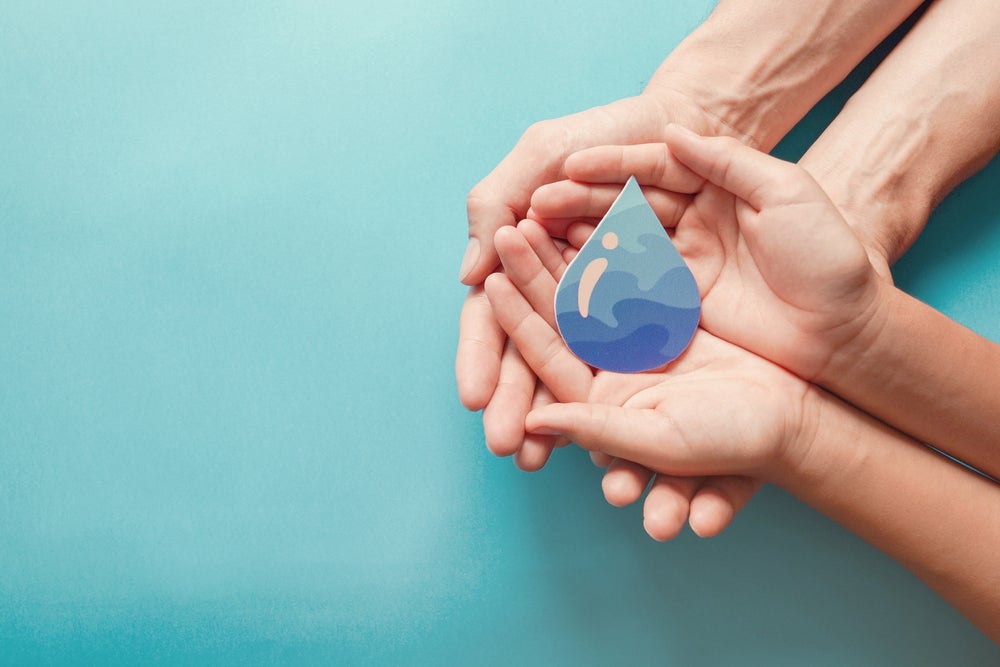
Water-related risks could hit apparel brands, retailers' profit margins
Non-profit financial think tank Planet Tracker has revealed “indirect” water-related impacts could pose a significant threat to fashion brands and retailers' operations and profits so investors are being urged to push for set sustainable water targets.
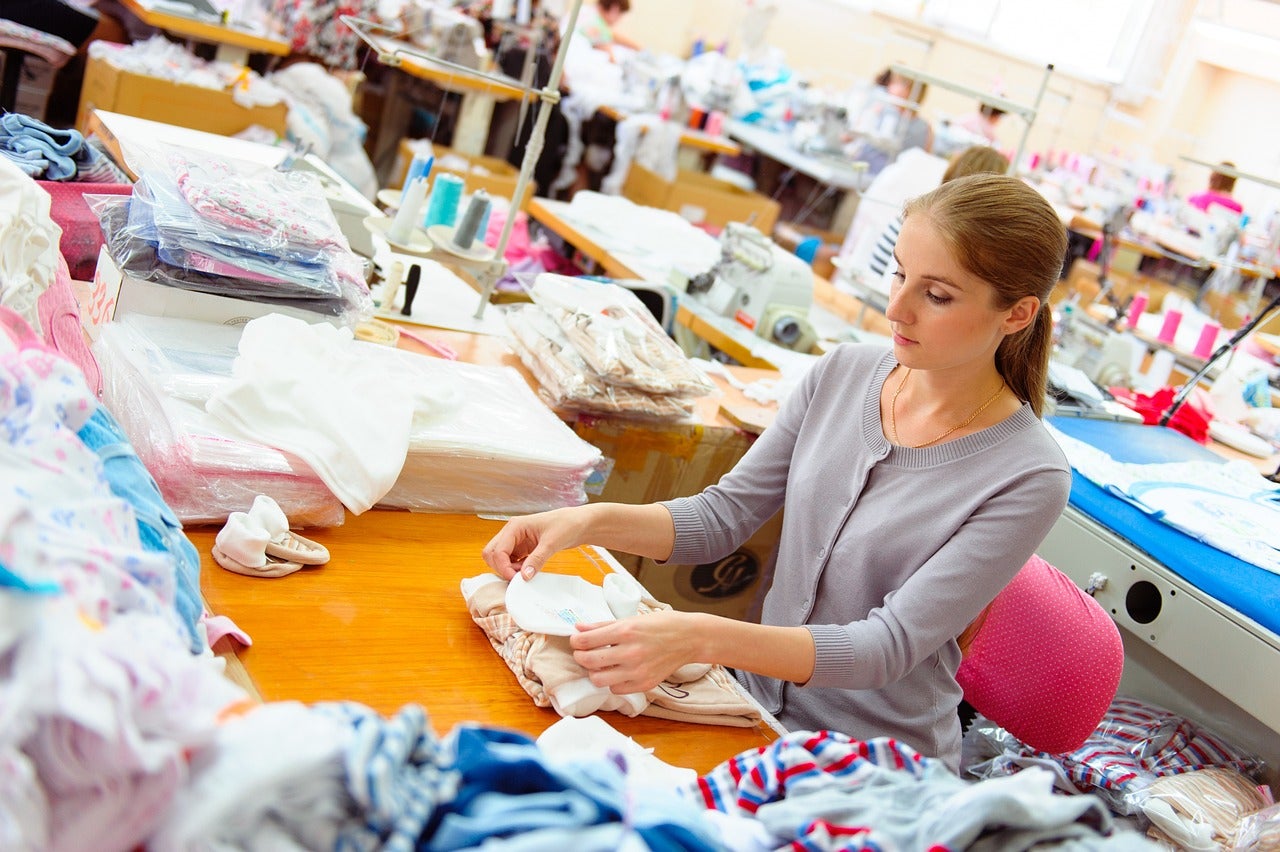
New Look backs Looper on green lifecycle tool development
UK fashion retailer New Look is supporting a project aimed at reducing the environmental impact of fashion production.

Sourcery, Rizq pilot earned income data project for Pakistan farmers
Global sourcing solution firm Sourcery and social enterprise Rizq are piloting an initiative to help 500 Pakistan cotton farmers earn additional income by collecting and selling primary data.

Lenzing turns used geotextiles into garments to extend lifecycle
Austrian cellulosic fibre producer Lenzing with its network of partners is working on processing geotextiles that are at the end of their two-year lifecycle into new textile fibres for garments.

Asos, Boohoo, George pledge ‘clear, accurate' green claims on CMA probe
Fashion retail giants Asos, Boohoo and George at Asda have signed pledges to use only “clear and accurate” claims in the way they display, describe, and promote their green credentials following action by the Competition and Markets Authority (CMA).
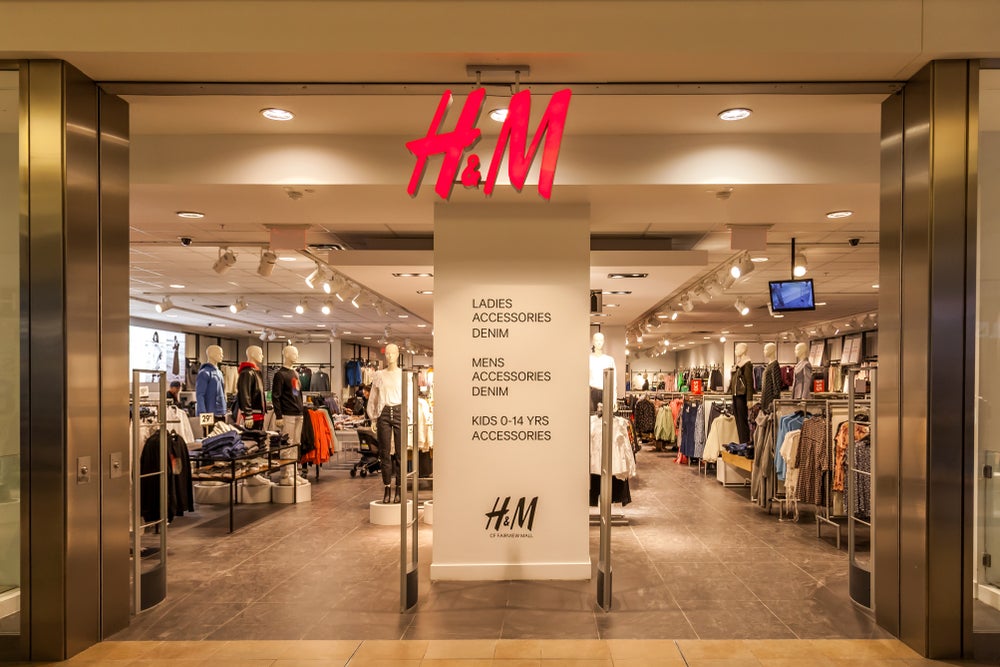
H&M ‘lacklustre' offering hits Q1 sales in first results under new CEO
A GlobalData apparel expert attributes Swedish retailer H&M’s “shaky” start to FY2023/24 to its namesake brand, which "remains the crux of the problem," as its lacklustre offerings caused Q1 sales to drop 2%.
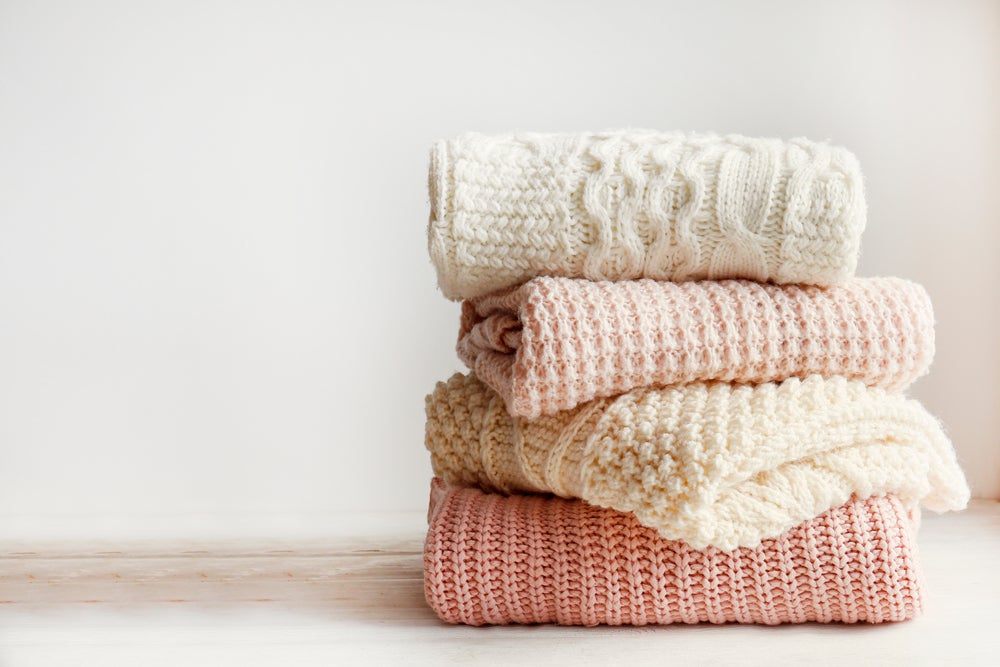
The Swedish Wool Initiative turns discarded fibres into worsted yarn
Made by textile manufacturer Klippan Yllefabrik, the soft worsted yarn offers apparel brands a new high-quality, bio-based and recyclable material.
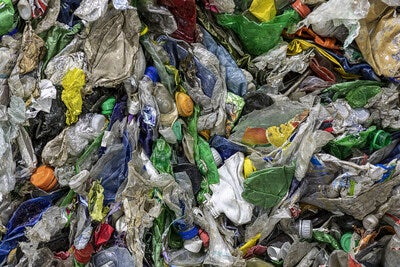
Eastman receives $375m for molecular recycling project
Specialty materials company Eastman has been selected to receive $375m in funding for a recycling project that will depolymerise waste and a polymer facility to create virgin-quality materials for packaging and textiles.
In our previous edition

Apparel Decoded
Lever Style's Szeto: ‘Versatility' is the secret behind 2023 profit surge
26 Mar 2024

Apparel Decoded
What can the apparel sector learn from the Renewcell bankruptcy?
25 Mar 2024

Apparel Decoded
Week in Data: Forced labour profits, Dick's Sporting Goods record sales
22 Mar 2024
Newsletters in other sectors
Aerospace, Defence & Security
Automotive
Banking & Payments
Construction
Medical Devices
Travel and Tourism
Search companies, themes, reports, as well as actionable data & insights spanning 22 global industries
Access more premium companies when you subscribe to Explorer


